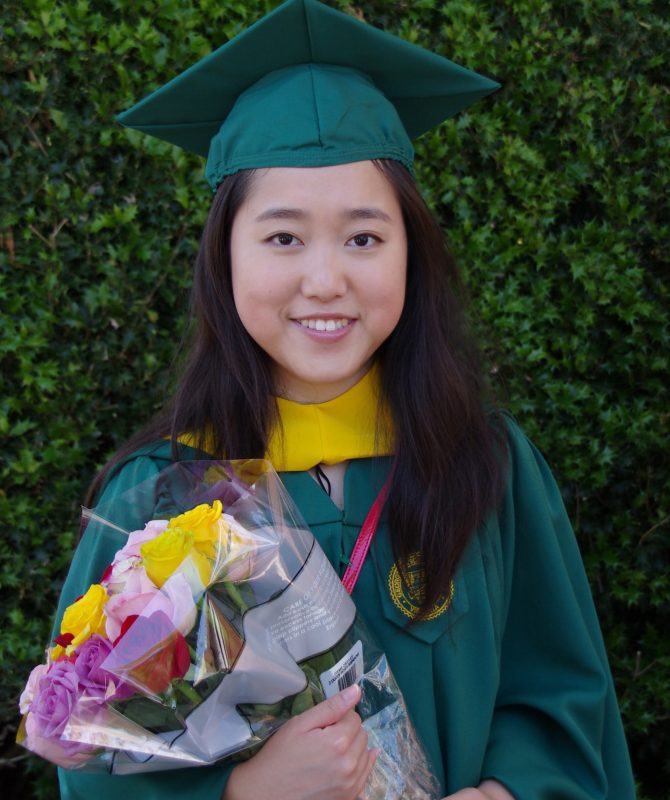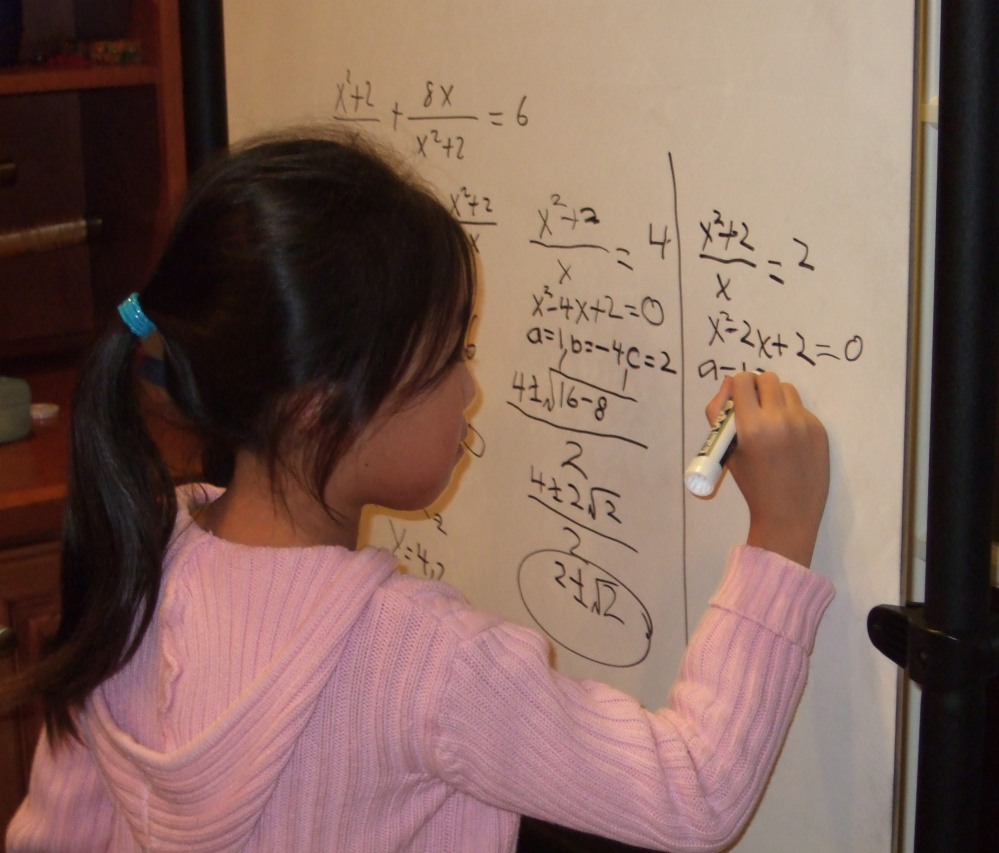Stephanie Mui doesn’t recall the specifics of the math problem presented to her fourth-grade class years ago. Regardless, it was so difficult, it stumped even her teacher. Not Mui, though.
“To solve it I remember I had to set up a system of algebraic equations and basically just solve them simultaneously,” said the 17-year-old from Fairfax, Virginia.
So, Mui is pretty sharp at math. Which makes sense. She has been working to master the subject since she was a little kid. According to Mui, she was learning addition and multiplication in preschool, and really, she just kept rolling. Mui proved to be so good at math that after fifth grade she started taking community college courses.
She didn’t stop there.
On Saturday, Mui will be the youngest among more than 8,700 graduates at George Mason University’s 50th commencement. She has earned a master’s degree in mathematics from Virginia’s largest public university, a milestone reached before she has even graduated from high school.
“To me, it’s just my life,” Mui said. “To others, it might look a little weird. But yeah, I just think it’s my life.”
Let’s not call it weird, though. Because sometimes people see the word “weird” and think it means “strange but like, in a bad way,” and The Washington Post does not want readers to think there is anything bad about being smart. Instead, let’s say that Mui’s path is remarkable, and even impressive.
“As a student she is sharp, very sharp. She impresses everyone,” Sean Lawton, an associate professor at George Mason who taught and mentored her. “As a human, she is mature, polite, observant, and careful. She works hard and does not give up.”
Lawton, director of the Mason Experimental Geometry Lab, met Mui a few years ago. At that point, he wrote in an email to The Post, Mui was “very mature already and intimidatingly smart.” Lawton offered her a project to work on in the lab, a problem he thought was pretty hard.
“One I didn’t know how to solve myself,” he wrote. “In a short time she came up with a good idea and began writing computer programs to test her ideas. She was fast. I had (and still do have) a hard time keeping up with her.”
Mui’s first attempt to solve it was unsuccessful. But she got there eventually and ended up making 3-D prints and movies of her results. The project was prizewinning, and this semester, Lawton said, she read and explained research articles that “laid the theoretical foundation” of the project.
“The funny thing was that after she read the papers we realized that her solution to the geometry problem I gave her was very near to the original theoretical approach laid down by John Nash (the Nobel laureate and leading character of the movie “A Beautiful Mind”), which was pretty cool to see since she came up with her solution before reading Nash’s paper,” he wrote.
Lawton lauded Mui’s presentations and said her mathematical writing was “amazing” for her age and experience level.
“I remember when I first offered to pay her a small wage to work on her research from one of my grants,” he wrote. “She refused, saying she was not sure if it was right to be paid for thinking about math.”
(Mui spoke with her parents and ended up taking the money, Lawton said.)
It was a little scary to go to Mason from Northern Virginia Community College, which offers a lot of classes online, Mui said. At Mason, she was in a traditional classroom environment. Mui said she didn’t tell people her age, but she didn’t lie about it, either.
“I’m really glad I did it,” she said of her nontraditional path. “I like being challenged.”
The daughter of engineers, Mui started taking community college courses after fifth grade, and George Mason said she earned a bachelor’s degree in mathematics from the university last year. While she pursued her master’s, she continued her high school education. In June, she will graduate from Oakton High in Fairfax County.
Grace Wang, who taught Mui honors biology at Oakton, called her pupil bright, kind and humble, a goal-oriented student who was conscientious and responsible. In an email, she called Mui an “amazing young lady,” who could serve as a role model to girls interested in science and math, and “one of the most brilliant students” that she had ever taught.
“You can be brilliant and successful while maintaining humility,” Wang wrote. “Unlike others that would be boastful or arrogant, she was not a self promoter and was intrinsically motivated. She has a truly inquisitive mind and loved learning and discovering things.”
Many of her peers are headed off to college next fall. Mui is bound for New York University as a doctoral candidate, where she will study at the private university’s Courant Institute of Mathematical Sciences.
“I kind of look at math like it’s a puzzle,” Mui said. “It’s a fun puzzle to solve. To me that’s what it is. I think people should see it as that, too.”
Send questions/comments to the editors.



